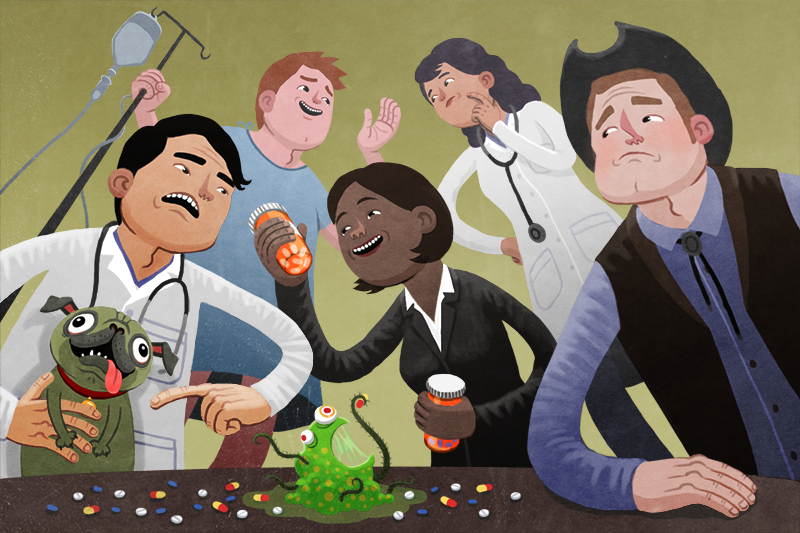Policies, economics and social norms contribute to antibiotic resistance

Illustration: Research Communications
Antibiotic resistance develops when an antibiotic drug loses its effectiveness against bacteria, generally through the overuse or inappropriate use of the drug. Through genetic mutation and selection, bacteria can evolve defenses against the antibiotic
Two Texas A&M researchers — Morgan Scott in the College of Veterinary Medicine & Biomedical Sciences and Alex McIntosh in the Department of Sociology – examined the social psychology of antibiotic use among veterinarians. They found that several factors influenced why and how antibiotics are used. These factors include policy, economics, social norms regarding treatment, and a belief that antibiotics are “a good thing to do.”
“When you start understanding the behavior, you start to realize that the aggregate that defines the perceived behavioral constraint is the policy and the regulations that oversee the use of antibiotics as well as the unwritten policy of why people do what they do,” Scott said.
#TAMUresearch

